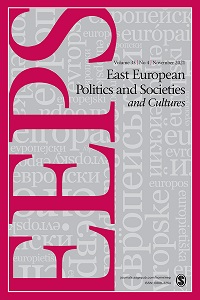In Need of a Leader: Bolesław Piasecki’s Charismatic Leadership in the 1930s
In Need of a Leader: Bolesław Piasecki’s Charismatic Leadership in the 1930s
Author(s): Izabela MrzygłódContributor(s): Mikołaj Sekrecki (Translator)
Subject(s): Political history, Government/Political systems, Political behavior, Interwar Period (1920 - 1939), Fascism, Nazism and WW II
Published by: SAGE Publications Ltd
Keywords: Poland; fascism; Bolesław Piasecki; charisma; leadership;
Summary/Abstract: Bolesław Piasecki, the leader of the Polish National Radical Movement (RNR), was one of the influential far-right activists in the 1930s. This article examines his political leadership through the lens of Weberian charismatic authority, enhanced by Anthony Ammeter’s framework for analyzing the power dynamics of leadership. Through a close investigation of the development of his political career, the article shows—in contrast to much of the existing literature—that Piasecki’s power was forged through triangular interactions between his skills and influential personality, the expectations and needs of his associates, and as a result of a series of events in which he displayed the ability to wield political impact. This approach sheds light on the ways in which political leadership is reliant on a wider network of relationships and shows that Piasecki’s charismatic authority was to a large extent an image constructed by his closest associates. At the same time, it shows parallels and connections between the RNR and other European fascist movements. This approach enables us to define and specify more precisely the nature of the RNR, and dig deep into the complex dynamics lying behind the final failure of the movement and Piasecki’s leadership.
Journal: East European Politics and Societies
- Issue Year: 35/2021
- Issue No: 04
- Page Range: 876-898
- Page Count: 23
- Language: English
- Content File-PDF

